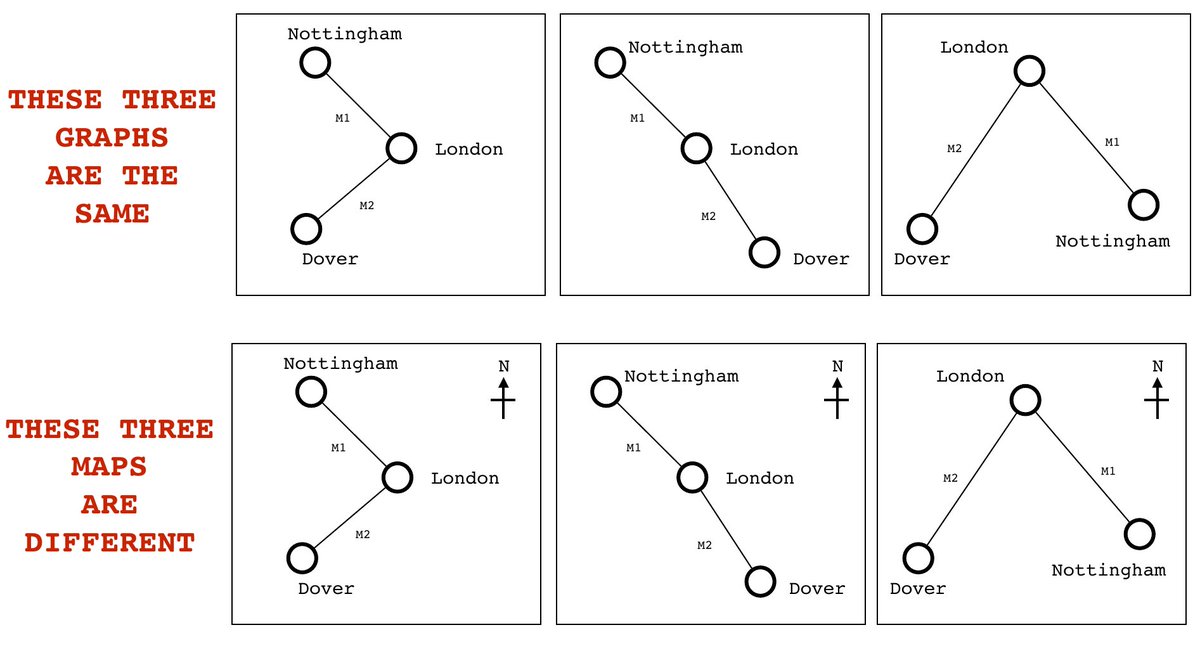
X : You're often quite harsh on Google.
Me : What?!? Where did that come from. I like Google but they've got tough challenges ahead. Friends don't just go "you're doing fine" when you're not.
X : What tough challenges?
Me : Ok ...
Me : What?!? Where did that come from. I like Google but they've got tough challenges ahead. Friends don't just go "you're doing fine" when you're not.
X : What tough challenges?
Me : Ok ...
1. The rise of serverless and FinOps, especially when we get things like carbon reporting / energy use per function etc. Google's down the Kubernetes path and AWS is running away with it.
2. The shift of networks into space and the application of Moore's law ...
2. The shift of networks into space and the application of Moore's law ...
... once networks get up there, compute and storage will eventually follow. AWS (GroundStation et al), SpaceX etc are all over this.
3. The growth of competitors from China (Alibaba, Baidu). Don't underestimate the impact to the cultural psyche of Silicon Valley as ...
3. The growth of competitors from China (Alibaba, Baidu). Don't underestimate the impact to the cultural psyche of Silicon Valley as ...
... China is seen as more successful than the West.
4. The growth of the metaverse and immersive experiences (see Facebook to AWS New World to MSFT Bethesda). Google's betting on AR as its starting point but get that wrong and you lose eyeballs ...
4. The growth of the metaverse and immersive experiences (see Facebook to AWS New World to MSFT Bethesda). Google's betting on AR as its starting point but get that wrong and you lose eyeballs ...
5. Inceasing political pressure and regulatory scrutiny for a host of reasons from digital sovereignty, embedding of nation state values into AI and accusations of market failure / monopoly.
These are all tough challenges.
These are all tough challenges.
X : Datacentres in space, not in the next 25 years.
Me : Sure. But many of us will spend the first 20 years going "no, it won't happen". The next 10 years going "it's just for startups". The 10 years after that panicking as we realise that all our assets are becoming liabilities.
Me : Sure. But many of us will spend the first 20 years going "no, it won't happen". The next 10 years going "it's just for startups". The 10 years after that panicking as we realise that all our assets are becoming liabilities.

X : Data centres in space? What problem are you trying to solve?
Me : As the network moves into space then compute & storage will follow.
X : It'll never happen.
Me : It already is -> NTT to launch data centres into space within five years - telecoms.com/509855/ntt-to-…
Me : As the network moves into space then compute & storage will follow.
X : It'll never happen.
Me : It already is -> NTT to launch data centres into space within five years - telecoms.com/509855/ntt-to-…
Me : Longer term, we don't have a choice. The mass of information cannot be held on Earth.
X : Why not?
Me : Because of its mass. Before that there are resource constraints. Construction won't be on Earth.
X : What do you mean "because of its mass"
Me : aip.scitation.org/doi/10.1063/5.…
X : Why not?
Me : Because of its mass. Before that there are resource constraints. Construction won't be on Earth.
X : What do you mean "because of its mass"
Me : aip.scitation.org/doi/10.1063/5.…
X : That's hundreds of years away.
Me : That is irrelevant. What matters is that we agree that the mass of information cannot be held on Earth. Now, it becomes a question of when not if. You see it as far away, I view it as closer as networks move into space.
Me : That is irrelevant. What matters is that we agree that the mass of information cannot be held on Earth. Now, it becomes a question of when not if. You see it as far away, I view it as closer as networks move into space.
X : I don't think it will happen.
Me : But we agreed it would?
X : Eventually, but ...
Me : Ok, once we can get beyond the if, it's now a question of when. We need to consider what could drive that movement. Many impossible things turn up in a 50 year timeframe.
Me : But we agreed it would?
X : Eventually, but ...
Me : Ok, once we can get beyond the if, it's now a question of when. We need to consider what could drive that movement. Many impossible things turn up in a 50 year timeframe.
To give perspective, I sat in a room with a bunch of IBM execs and explained how they would lose their hardware business to Amazon ... that was in 2008. I was basically laughed out the room. Well, it's 2021 and I don't see IBM laughing now. A lot can happen in 13 years.
I would be very cautious at underestimating the speed at which the network will move into space, the industrialisation of launching technology and robotics, the need for compute in space and the speed at which this will happen.
• • •
Missing some Tweet in this thread? You can try to
force a refresh







